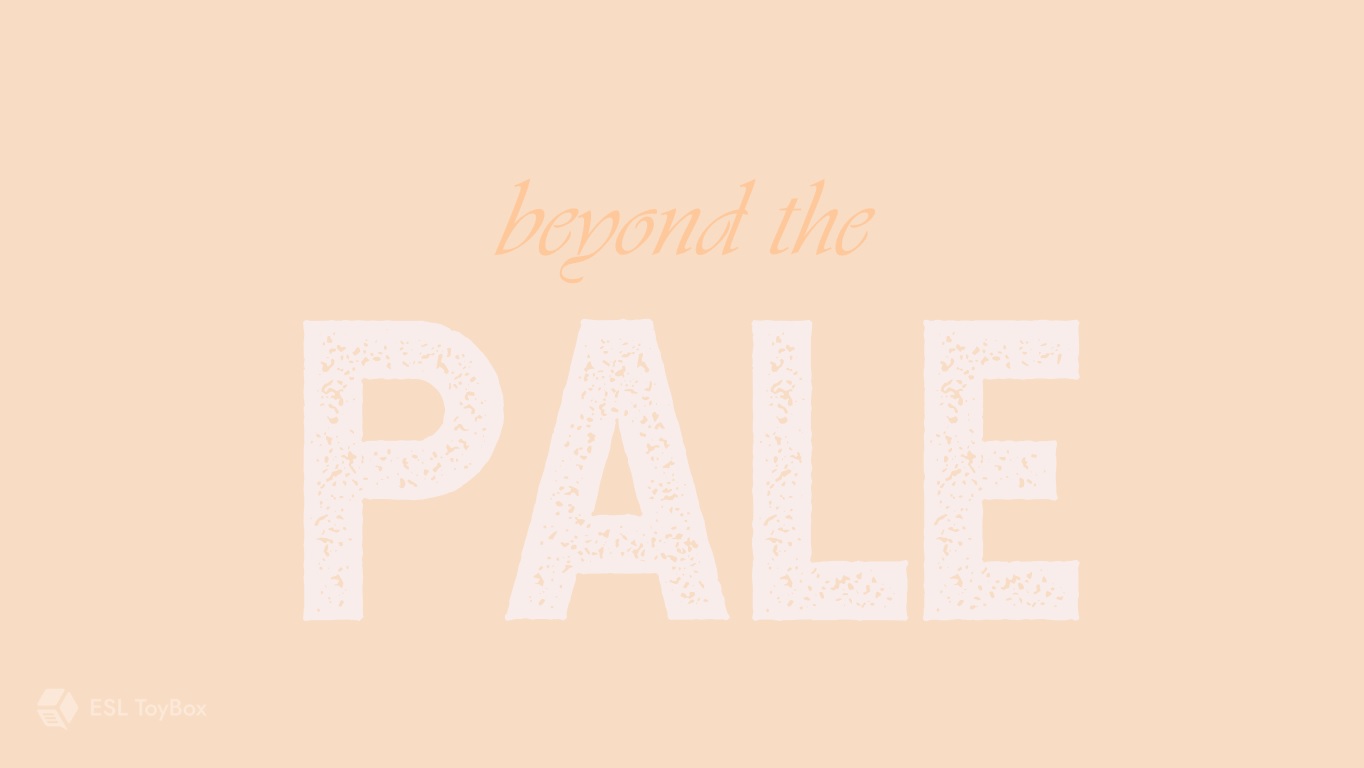Beyond the Pale
The phrase beyond the pale should only be used in extreme situations. It means that something is beyond what is normal and decent. You are telling the other person that their behavior is unacceptable.
Example: You can’t say that fascism is good. That is beyond the pale.
Debate me, Bro!
Recently, I learned about a YouTube subculture about debating. I enjoy watching debates, so I am surprised that I haven’t seen this before. Usually, I watch large formal debates between two experts or high-profile people. The YouTube community is made up of YouTube personalities debating in online forums. A recent incident between Sam Seder and Steven Crowder highlighted some of the issues with the growing culture. Insisting that someone debate you is called, ‘debate me’ culture (or ‘debate me bro’ culture). Some people might say that it is beyond the pale to force an unprepared person to debate you. While there are a lot of things wrong with the current discourse, I think it is always good to generate discussion.
I always thought that beyond the pale was a reference to the afterlife. People who have near-death experiences say they see a bright white light. Since the light doesn’t have a color, I thought that was the pale (having little or no color) that the phrase was referring to. So, anything beyond that light is outside of our experience. We can’t know it and therefore, we shouldn’t talk about it. I was wrong.
History
As it turns out, there is a second definition of pale. It can mean colorless OR a pointed piece of wood. The second meaning is now obsolete, but its history lives on. Impale (meaning to be stabbed) comes from the obsolete form of pale. Over time, the pointed piece of wood became a fence. The fence became a border, which became an area. So, if something was beyond the pale, it was outside the fence / border / area. It was considered outside of “home” and therefore uncomfortable.
In 1791, Catherine the Great created the Pale of Settlement. It was a border region of the country where Jewish people were allowed to live. Some Jews were allowed to live beyond the pale in Russia mostly because of trade and commerce. Other border pales included the Pale of Dublin and the Pale of Calais. The Pale of Dublin was also known as the English Pale. The English Pale and the Pale of Calais were areas under the control of England. In this case, beyond the pale referred to anything that is not part of England. With how many wars they were fighting (Pale of Calais is part of the Hundred Years War), it is easy to see how being beyond the pale would be considered unacceptable.
The phrase, beyond the pale, first appeared in print in 1657. However, the writer, John Harrington actually died in 1612. So, beyond the pale must have been in use before then. Anyways, in The History of Polinor and Flostella, Harrington writes;
“Both Dove-like roved forth beyond the pale to planted Myrtle-walk.”
See Also: Agree to Disagree
For more English phrases and quotes, follow me on Facebook:
https://www.facebook.com/ESL-ToyBox-112152010890485
Reference:
https://www.forbes.com/sites/danidiplacido/2021/06/22/sam-seder-humiliates-steven-crowder-after-surprise-debate-appearance-the-internet-laughs/?sh=5c830f77431c
https://www.theguardian.com/books/2019/may/03/death-of-debate-jordan-peterson-slavoj-zizek-alexandria-ocasio-cortez
https://www.phrases.org.uk/meanings/beyond-the-pale.html
https://wordhistories.net/2016/08/24/beyond-the-pale/
https://medium.com/@talkwordy/a-phrase-beyond-the-pale-a254d8a30a20


